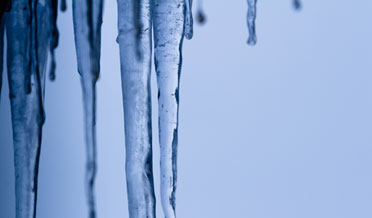Winterize Your Air Conditioner Unit
Winterize Your Air Conditioner System
The last of the year’s warm days are quickly passing and we are facing the heating season of late Fall and Winter. It will be a while before you need the air conditioner (AC), so this is the time to winterize your Air Conditioner to make sure it stays ready for Spring. Winterization will also help extend the life of your air conditioner; here are several tips to winterize your Air Conditioner unit:
- These Winterize Your Air Conditioner Unit tips are recommendations; we first suggest that you follow your instruction manual to ensure the manufacturer’s warranty remains valid.
- Since HVAC equipment is becoming increasingly complex, do not attempt repairs on your own. Attempting repairs can be both dangerous and expensive, so leave it to the professionals.
- Manufacturers recommend an annual maintenance check with a qualified HVAC technician. Winterization is not an alternative to regular preventative maintenance visits.
- This is time to bring in window AC units. Removing window units will:
- Protect your room from leaks—both water leaks from blowing rain and cold air leaking through and around the unit.
- Protect the window unit from winter weather, including freezing rain that can damage the compressor fins.
- Extend the life of the window unit.
- Do you have central air conditioning or a heat pump? This is an important determination since a heat pump can be in use all winter while an AC unit will be dormant. During the summer, a heat pump moves heat out of the house to help cool and moves heat from the outside to help heat. The process is very energy efficient, so DO NOT turn a heat pump off. How can you tell the difference? Read the model number on the manufacturer’s label; if the model number includes the letters HP, it is a heat pump. If you still have questions, write the model number down and look it up online.
- When you have determined you have an air conditioner, prepare to turn the power off to the AC for the Winter.
- Look at the service panel to determine whether the AC has a dedicated circuit, separate from the furnace. If there is a dedicated circuit, turn the power off at the breaker.
- If the AC unit does not have a dedicated circuit breaker, look for a small breaker box on or near the outside unit. Flip the switch to “off.” When Spring arrives, make sure you flip the switch back to the “on” position approximately 24 hours before using the AC unit.
- After the power is off, gently wash the build-up of dirt from between the cooling fins.
- The outside AC unit is called a compressor or condenser; it squeezes refrigerant gas with great pressure. Once the pressure is released, the gas cools, providing the cooling needed for your home. The refrigerant gas then picks up heat and the hot gas passes through a series of tubes. Fins give greater surface area and airflow cools the gas before it is compressed again.
- Grass clippings and dirt collects between the fins and reduce the airflow. A gentle stream of water washes it out.
- Do NOT use a power washer! Too much pressure will bend the fins and prevent airflow.
- Inspect the roof gutter system in the immediate vicinity.
- Make sure leaks or a clogged and overflowing gutter are not dropping water directly into the AC unit. The water can freeze and cause damage.
- Make sure the gutters are not depositing standing water around the base of the AC unit.
- If you cover the outdoor AC nit to Winterize Your Air Conditioner, make sure you do it correctly:
- A cover that encapsulates the whole unit might attract small animals seeking shelter for the winter. Manufacturers do not recommend this.
- A cover over the top of the unit can provide protection from ice, leaves and falling limbs. Make sure that the covering is secured and will not blow away to cause damage.
- Schedule a date in early Spring to remove the cover. The cover will restrict airflow and can cause the AC unit to overheat. Overheating can result in the compressor unit failing.
Give Mullinix a call and schedule an HVAC maintenance visit to Winterize Your Air Conditioner; this will extend the life of your system and improve energy efficiency .
Have questions about how to Winterize Your Air Conditioner?
For more information about R.M. Mullinix and Fire Safety Tips During Heating Season, schedule an appointment, or visit our New AC Installation information page.

